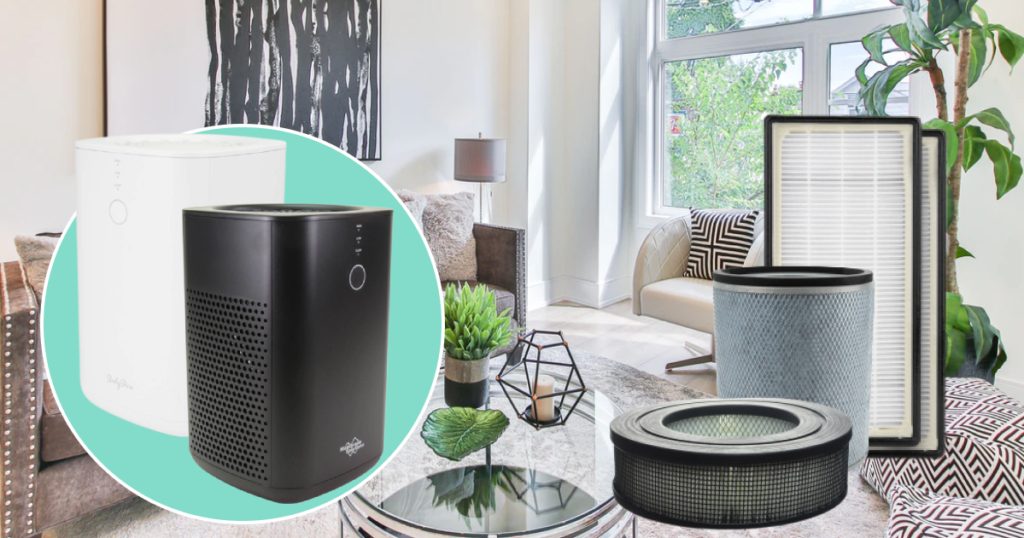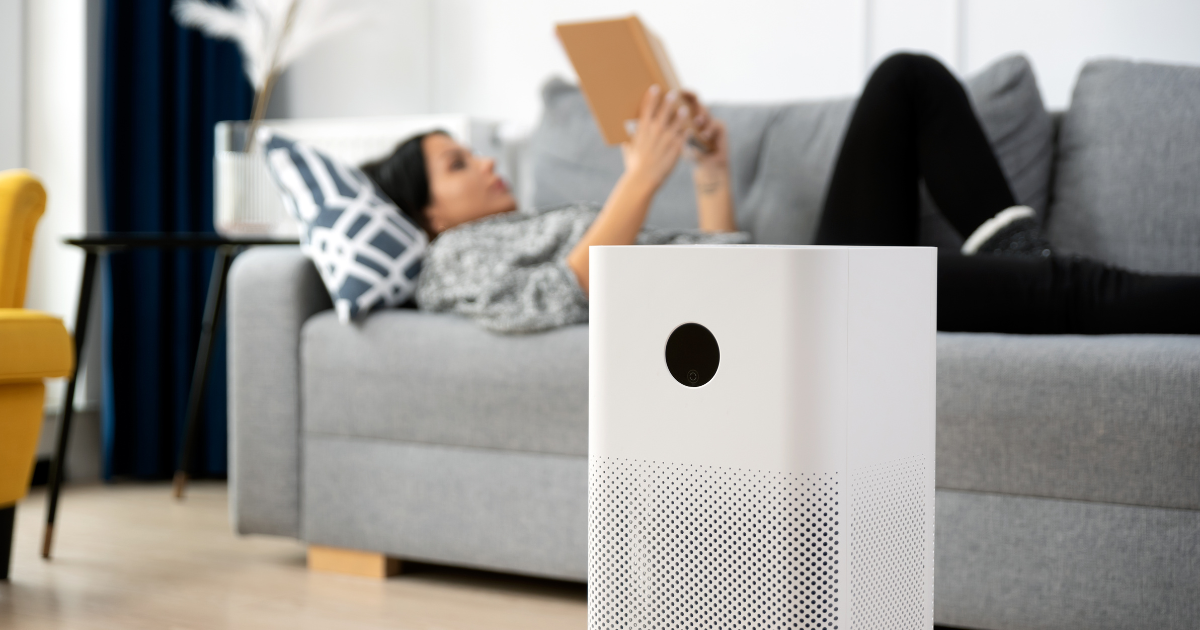Dealing with allergies can be quite a hassle. The constant sneezing, water eyes, runny nose, or coughing can really disrupt your daily life and all you want is some relief. Allergens like dust, dust mites, pet dander, and pollen are all common triggers for these symptoms, making you feel pretty miserable. But don’t worry! There’s good news: air purifiers can be a game-changer in reducing your allergy symptoms.
How Air Purifiers Help Reduce Allergies
An air purifier does exactly what its name suggests, purifying the air. It traps airborne particles like dust, pollen, and pet dander, all common allergens. With that said, here are a few ways air purifiers can help reduce allergies:
Filters Allergens
Air purifiers work wonders in cleaning the air by filtering out particles and allergens like dust and pollen. Especially those that are equipped with HEPA filters. HEPA, which stands for High Efficiency Particulate Air, signifies that these filters can trap particles as tiny as 0.3 microns and remove at least 99.97% of airborne particles – something other basic air purifier filters might struggle with. Even if an air purifier doesn’t have a HEPA filter, it can still be helpful in filtering and trapping larger allergens like dust and pet dander.
Prevents Allergen Buildup
When air purifiers run non-stop, they continuously filter out allergens like dust, pollen, and pet dander from your indoor air. This ongoing process prevents these particles from accumulating on surfaces or lingering in the air, effectively stopping allergen buildup over time. So, you can enjoy more relief and comfort in your home, knowing that your air purifier is hard at work keeping allergens in check.
Relieves Seasonal Allergy
If seasonal allergies are getting you down, air purifiers might just be the solution you’re looking for. Let’s focus on mold, for example. Mold thrives in warm, humid conditions, so it tends to peak and be a larger issue during the spring and summer months. This is where HEPA filters shine – they’re best at capturing mold spores from your indoor air, making them a must-have during allergy seasons. And let’s not forget about pollen, another major seasonal allergy culprit – air purifiers are helpful in trapping those particles, too.
Air Purifiers Improve Indoor Air Quality
Overall, an air purifier improves your indoor air quality. Air cleaners can trap both large and small particles and allergens, depending on the air purifier filter you choose. However, in general, all of them create a more purified, healthier indoor environment in your home, removing allergens so you can experience allergy relief. By running your air purifier continuously, it will boost your indoor air quality through its filtration process.

Room Air Purifier and Air Filters at Discount Filters
Surprise! You can find both room air purifiers and air purifier filters at Discount Filters. We understand the importance of what air purifiers can do not only for your indoor air but also how they connect to providing you with allergy relief. It’s important to remind yourself that although air purifiers can provide allergy relief, they are not a one-size-fits-all solution. Always make sure to continue taking your recommended medications as needed.
Other Frequently Asked Questions
Where should an air purifier be placed in a room?
Taking a living room as an example, it is suggested to place your air purifier in the middle of the room and near seating areas. Placing an air purifier set in the center of a room allows it to have access to the most particles and therefore can have the biggest impact on moving air in the room.
Should air purifiers be on the floor or up high?
Experts recommend placing air purifiers on the floor. Positioning them near the ground exposes your air purifier to higher concentrations of pollutants. Placing it on a shelf can reduce its filtration efficiency.
How long does it take for an air filter to clean air?
Depending on the size and shape of the room where your air purifier is placed, it should bring the air quality down to healthy levels with air filtration in between 30 minutes to a few hours.
How do I know if I need an air purifier in my home?
If particles like pollen, dust, pet dander, or other allergy triggers are affecting you at home and creating indoor air pollution, it might be best to consider adding an air cleaner and a good air conditioning filter to your HVAC system as well. Look for air purifier filters that can effectively trap airborne particles, such as HEPA filters.
What Is Clean Air Delivery Rate (CADR)
Clean Air Delivery Rate, or CADR, is a measurement of the amount of air a filtering system can process, filter, and deliver per minute. Higher CADR ratings indicate a faster filtration process that will clean the air in a given space more quickly.

